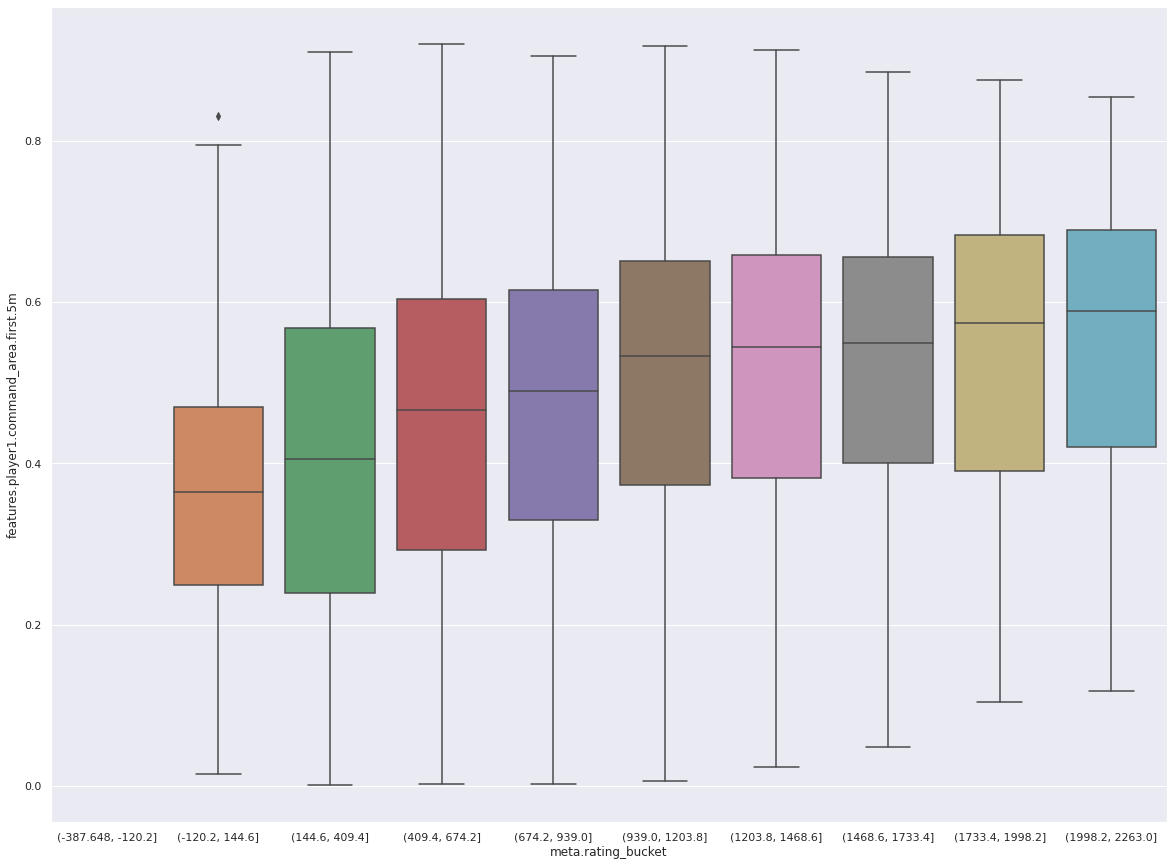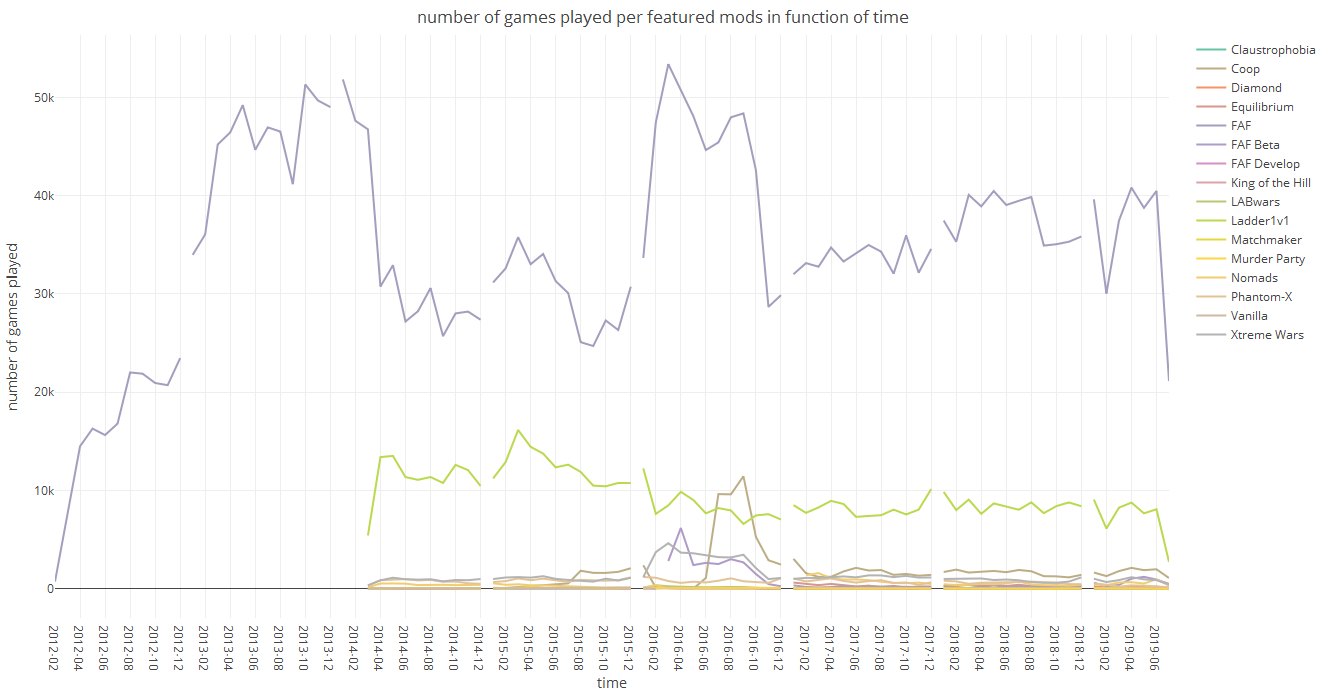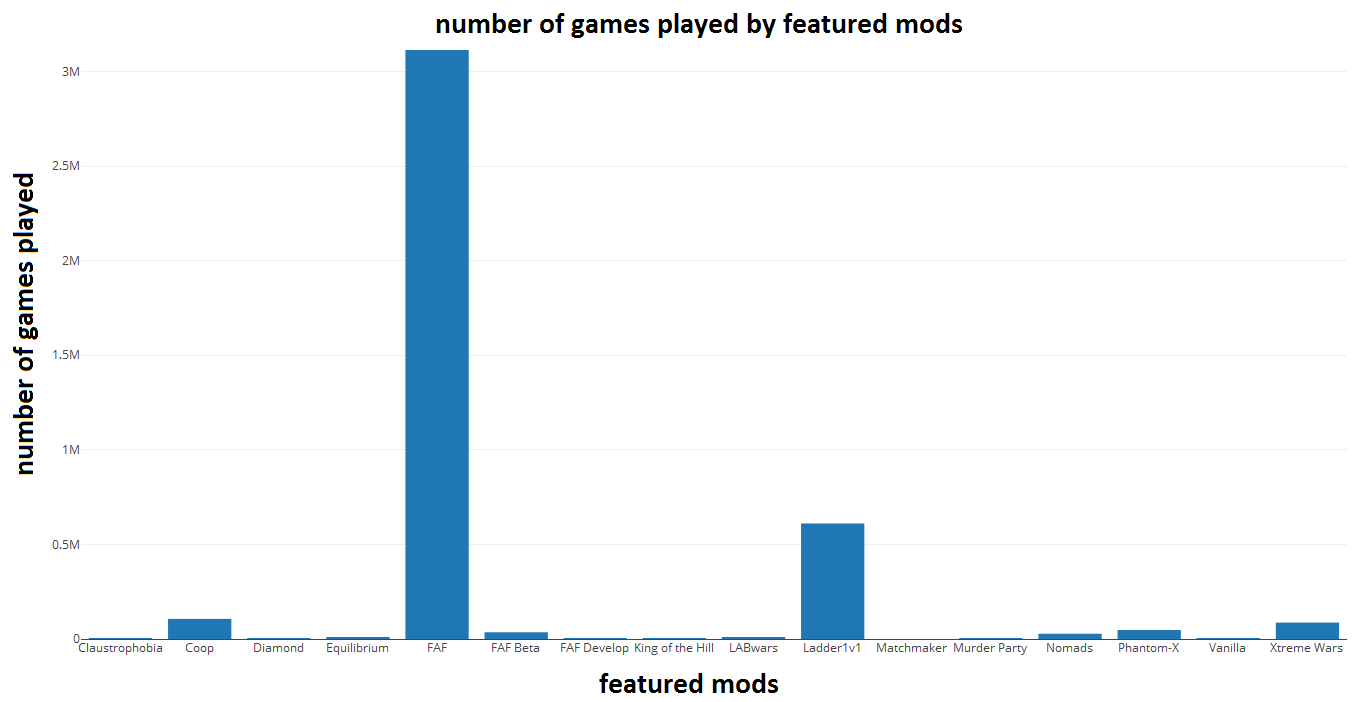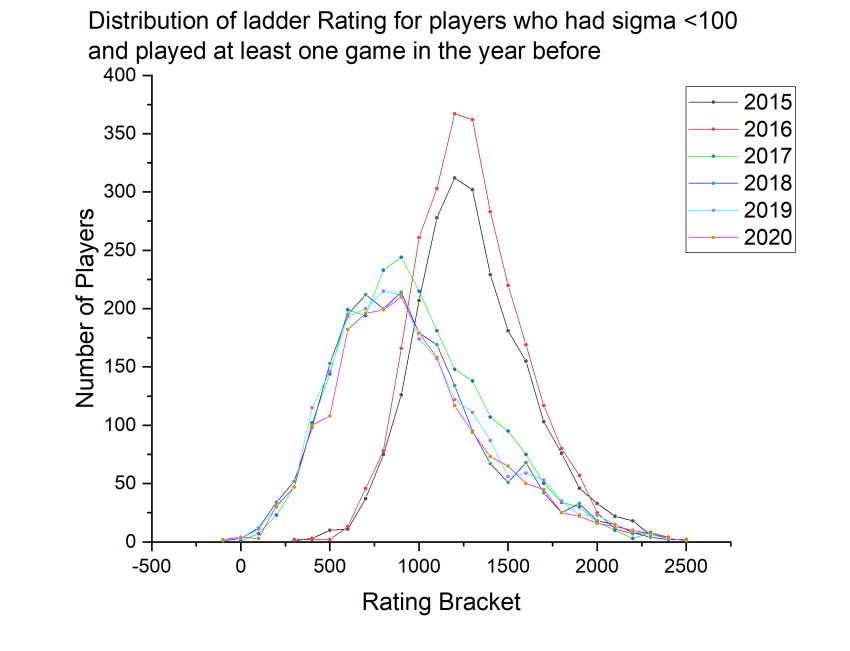FAF Statistics Megathread
-
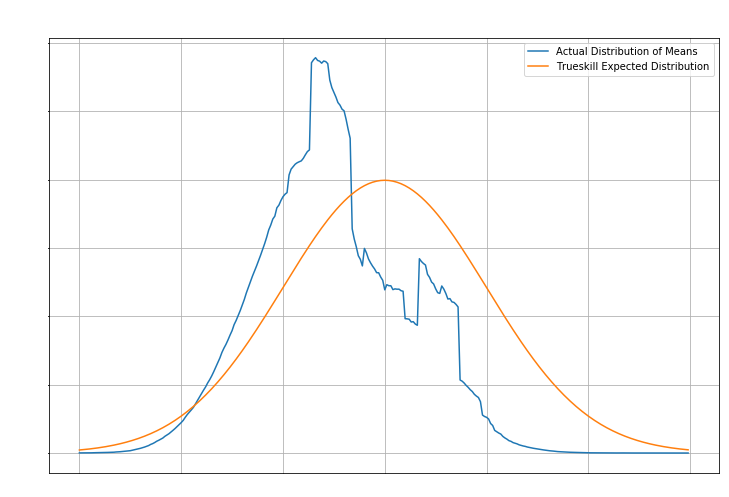
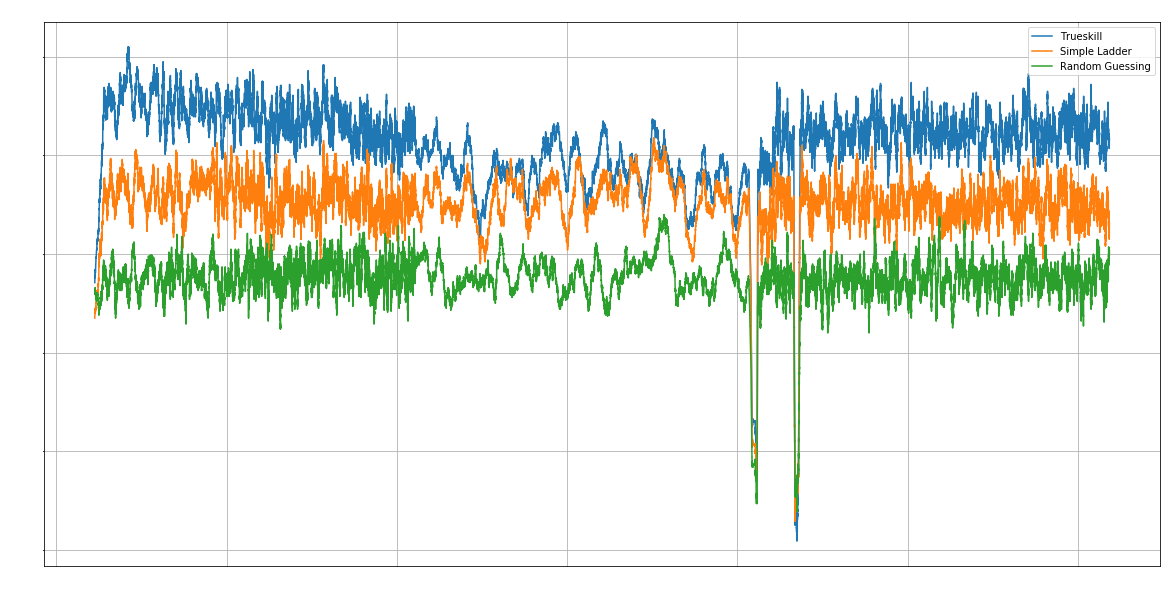
Mean success rate: 324034/521269 ==> 62.2% (Trueskill)
Mean success rate: 286803/521269 ==> 55.0% (Simple Ladder)
Mean success rate: 247667/521269 ==> 47.5% (Random Guessing)The 'Simple Ladder' scheme awards players -1, 0, and 1 points for losses, draws, and wins respectively.
Note that the data used for these experiments is biased by having had the trueskill rating scheme used as the matchmaker.Both plots are for 1v1 results only. Other rating schemes may appear in future plots, if you have ideas or questions let me know.
Source : https://forums.faforever.com/viewtopic.php?f=2&t=13449&start=90#p169175
-
A player is considered "active" if their player details have been updated in the past month, e.g. by logging in.
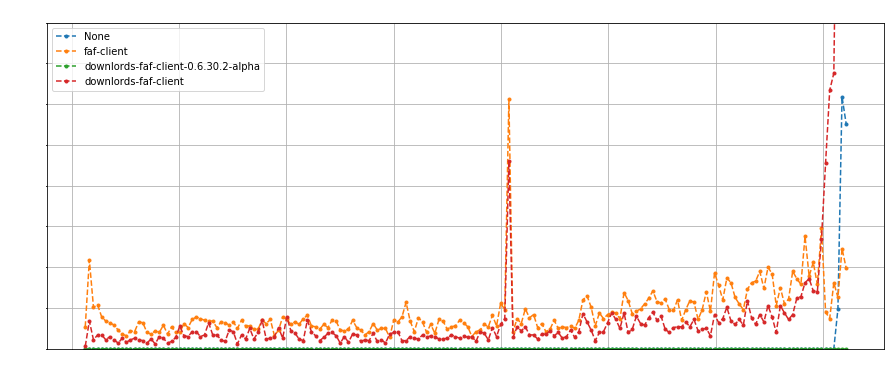
A player is considered "retained" if they are active.
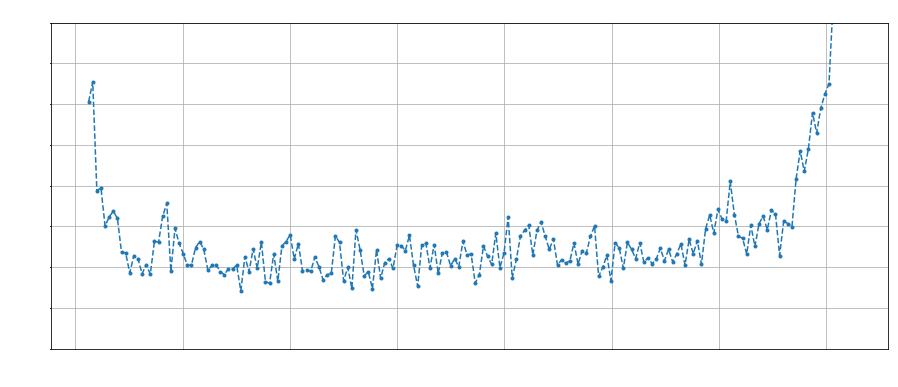
Source : https://forums.faforever.com/viewtopic.php?f=2&t=13449&start=90#p173021
-
Old stats from the dark world of FAF moderation :
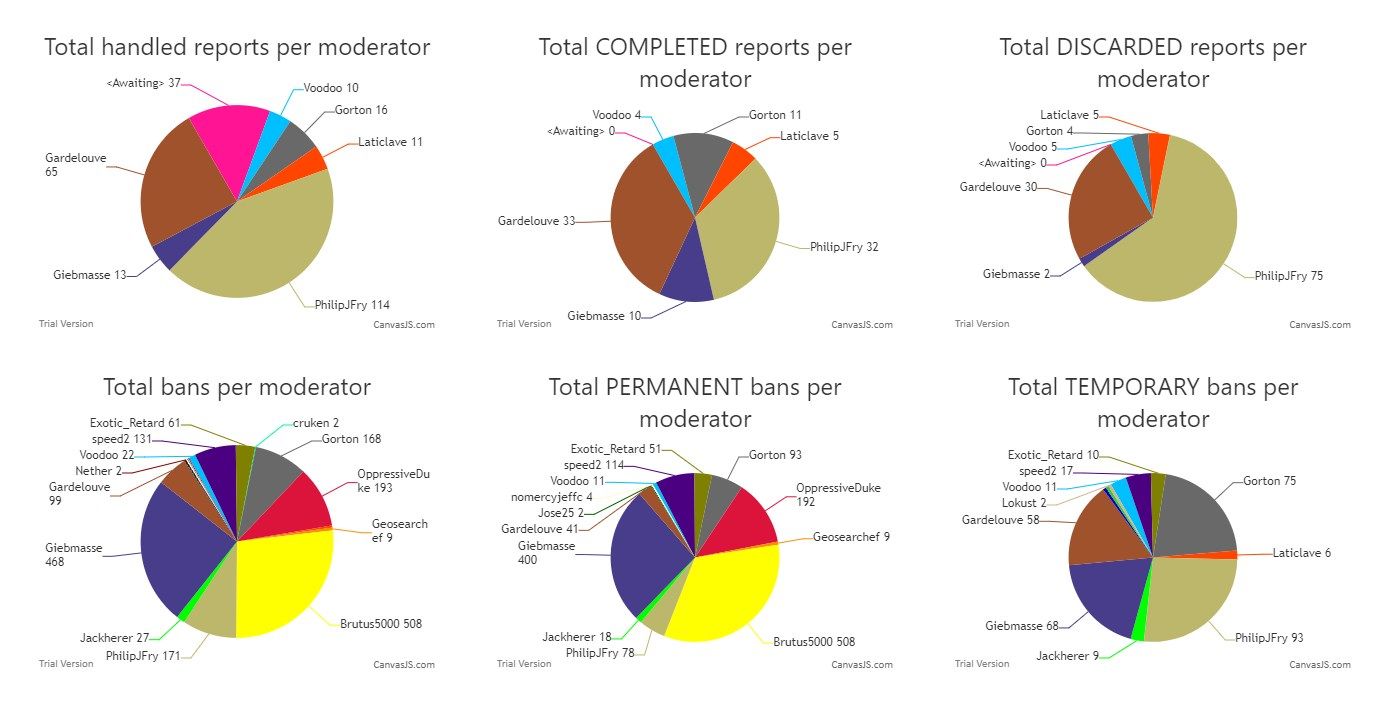
Source : https://forums.faforever.com/viewtopic.php?f=2&t=13449&start=100#p175559
-
-
we had some 2012 supremacy discussions recently, i've got bored and made some plots.
all stats are from the current leaderboards, so the plots don't account for smurfs, inactive players etc.rating on the x axis, number of players on the y axis, different sub plots by years
top 5000 global rated players
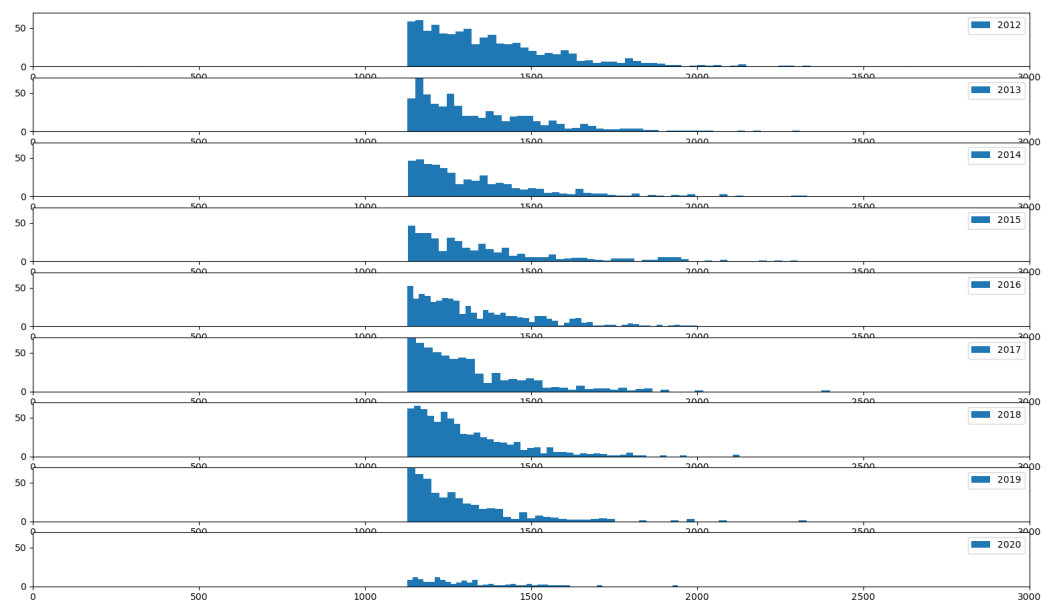
top 5000 ladder rated players
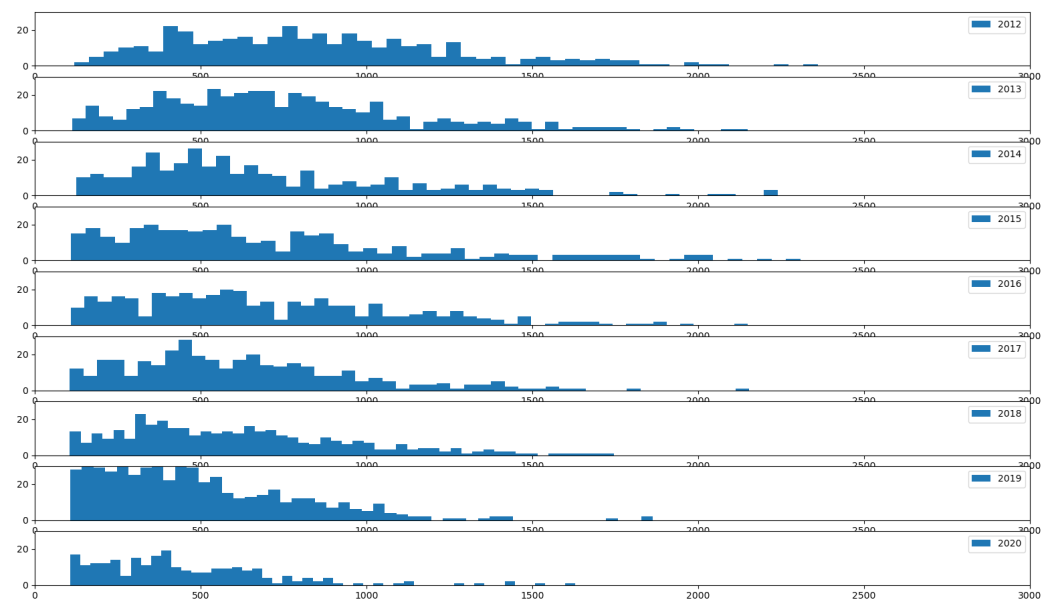
Source : https://forums.faforever.com/viewtopic.php?f=2&t=13449&start=120#p184762 -
-
LOTS GROUP STAGE 2020 STATISTICS – ALL GROUPS
There were 54 total matches. None of the matches went to a draw.How many times was each faction played?
UEF – 38 (35%)
Seraphim – 30 (28%)
Cybran – 24 (22%)
Aeon – 16 (15%)How many mirror matchups were there?
Total – 11 (20%)
UEF – 5 (9.3%)
Seraphim – 4 (7.4%)
Cybran – 2 (3.7%)
Aeon – 0 (0.0%)Particular Non-Mirror Matchups
UEF-Seraphim - 11 (20.4%)
UEF-Cybran - 9 (16.7%)
UEF-Aeon - 8 (14.8%)
Seraphim-Cybran - 7 (13.0%)
Seraphim-Aeon - 4 (7.4%)
Cybran-Aeon - 4 (7.4%)Favorite Faction
archsimkat – Aeon (50%)
Blackheart – Seraphim (43%)
Blast_Chilled – Aeon/UEF (33%)
BlInChIk – Cybran/UEF (50%)
Blodir – Cybran/UEF (50%)
Bullydozer – No favorite
Espiranto – Seraphim (50%)
JaggedAppliance – Aeon/UEF (33%)
Nexus – Cybran (50%)
Paralon – No favorite
Petric – UEF (38%)
Swkoll – Seraphim (43%)
Tagada – UEF (67%)
TURBO2 – UEF (86%)
TurinTurambar – Cybran/Seraphim (33%)
ZLO – Seraphim (71%)LOTS GROUP STAGE 2020 STATISTICS – GROUP B
Morax provided me with the faction choices and vetoes for each of the 12 matches played by Group B.
Veto Frequency:
Seraphim – 10 (42%)
UEF – 9 (38%)
Cybran – 3 (13%)
Aeon – 2 (8.3%)Most-Vetoed Faction
archsimkat – none
Nexus – none
Paralon – UEF (66%)
TurinTurambar – Seraphim (66%)How often was a player’s first choice vetoed?
Total – 18 out of 24 (75%)
Seraphim – 9 (37.5%)
UEF – 5 (20.8%)
Cybran – 3 (12.5%)
Aeon – 1 (4.2%)by player - how often this player's first-choice faction was vetoed:
archsimkat – 5 (83%)
Nexus – 5 (83%)
Paralon – 4 (67%)
Turin – 4 (67%)How often did a player veto their own first choice?
Only 4 out of 24 times (16.7%). Each of the players did this only 1 time.How often did a player veto the same faction for the same opponent?
Each player in Group B played 2 games against each other player.
Paralon vetoed UEF twice against Nexus
Turin vetoed Seraphim twice against Paralon and against Nexus
Turin and archsimkat both vetoed UEF twice against each otherHow often did both players make the same first choice?
8 out of 12 times (67%).How often did both players make the same first- and second choices?
Only 1 out of 12 times. On desert arena, Nexus and Turin both chose Seraphim and UEF.Impressions:
The veto system seems to be accomplishing its goals (reducing mirror matchups and increasing faction diversity). Two mirror matchups were very poorly-represented in the group stage (just two Cybran-vs-Cybran games, and no Aeon-vs-Aeon). Otherwise, every single possible faction matchup was represented at least 4 times.
Seraphim at the moment tends to be favored, at least in ladder matches, but it was not the most common faction in this tournament. There were a very small number of Seraphim-Seraphim mirror matchups, just 4. They took place on crazyrush (2 games), desert arena, and Loki. Based on information from Group B, this is apparently because of the veto system.
It is surprising to me how infrequently players vetoed their own first choice. Each of the four players in Group B played 6 matches and only did this 1 time. Also, it was less than half the time that players vetoed the same faction for the same opponent. Each player in Group B played 2 matches against each other player in Group B. Only 5 times out of 12 did the players veto the same faction in both matches.
These figures indicate that players look at both the map, and the other player’s skills with a particular faction, when deciding what to veto. It seems that players did not just decide “Swkoll likes UEF, I will ban that” or “UEF is best on crazyrush, I will ban that.” The exception is that everyone who played on Crossfire Canal (archsimkat, Nexus, and Paralon) chose Seraphim AND banned Seraphim.
Even though players rarely vetoed the own first choice, they frequently vetoed their opponent's first choice, 75% of the time. This suggests that the players have a good idea of which factions their opponents prefer to use on any particular map. If you know that your first choice will probably be vetoed (a 75% chance) and that your opponent's first choice will probably be vetoed (a 75% chance) this means there is a high chance you and your opponent will both get the second-choice faction. Of the 12 games, in 7 of them, both players got their second choice.
While players usually made the same first choice of faction (8 of the 12 games), they rarely also made the same second choice (only 1 out of the 12). While players may have some idea that a particular faction is best on a particular map, it seems players have more diverse opinions about which factions may be second-best. And they might be playing a meta-game along the lines of "when I ban Seraphim, my opponent's second choice will be Cybran, and if they're going to be Cybran, I would rather have UEF."
If players had the same idea about what the second-best faction is on a map, we would expect to see a lot of mirror matchups as a result. For example, if both chose sera-cybran then both would probably veto seraphim (because 75% of the time, players picked their opponent's first choice to veto) which would result in a mirror matchup. But we didn't see that very often, at least with the limited data we have (Group B only).
Comparison to LotS 2019
In 2019, out of 56 matches, 41 were mirror matchups (73%). Cybran was the most common (38%), followed by UEF (20%), Aeon (9%), and Seraphim (7%). The primary reason given for adopting the veto system was the prevalence of mirror matchups during LotS.
in 2019, few people wanted to play Seraphim. In 2019, only 10 out of 56 matches (18%) had any Seraphim. This time, people were largely prohibited from playing as Seraphim, and still 26 out of 54 matches (48%) had Seraphim.
In 2019, Aeon-Cybran and Seraphim-UEF only occurred once each. Aeon-Seraphim and Aeon-UEF did not happen at all. So those four matchups occurred only a total of 2 out of 56 times in 2019 (3.6%). But in 2020, those four matchups occurred a total of 27 times out of 54 (50%).
Clearly, the veto system has accomplished what it was intended to do, namely to promote faction diversity at the tournament and to discourage mirror matchups. Whether it is a good thing, or a bad thing, is a separate question--this analysis doesn't see any of the drawbacks to the veto system. Maybe players think it is clunky, or some players hate not getting to play their chosen faction. I can't say whether it is good or bad, but no one can say that it isn't working.
-
new stats from @Brutus5000 :
Most played maps of all time :

Team Match Maker Number of games per month:

Team Match Maker Number of unique players per month:

Ladder Number of unique players per month:

Total games played per month over a year and a half :
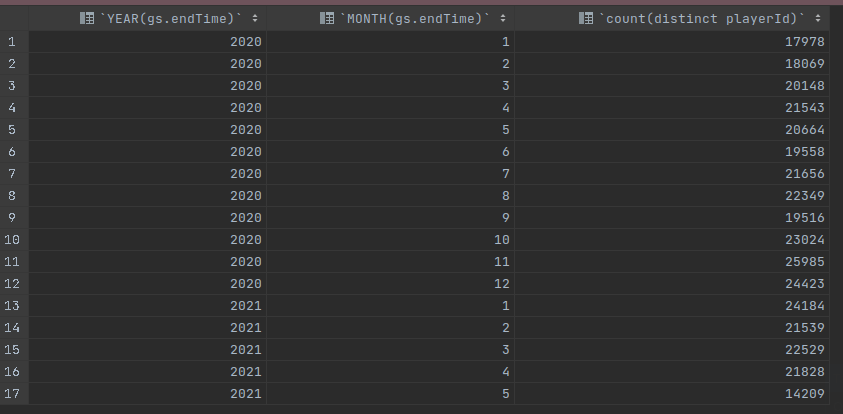
-
this tool allows you to consult personal (and also some more general) stats :
http://95.216.153.185/faf-web-collection-master/here are some examples :
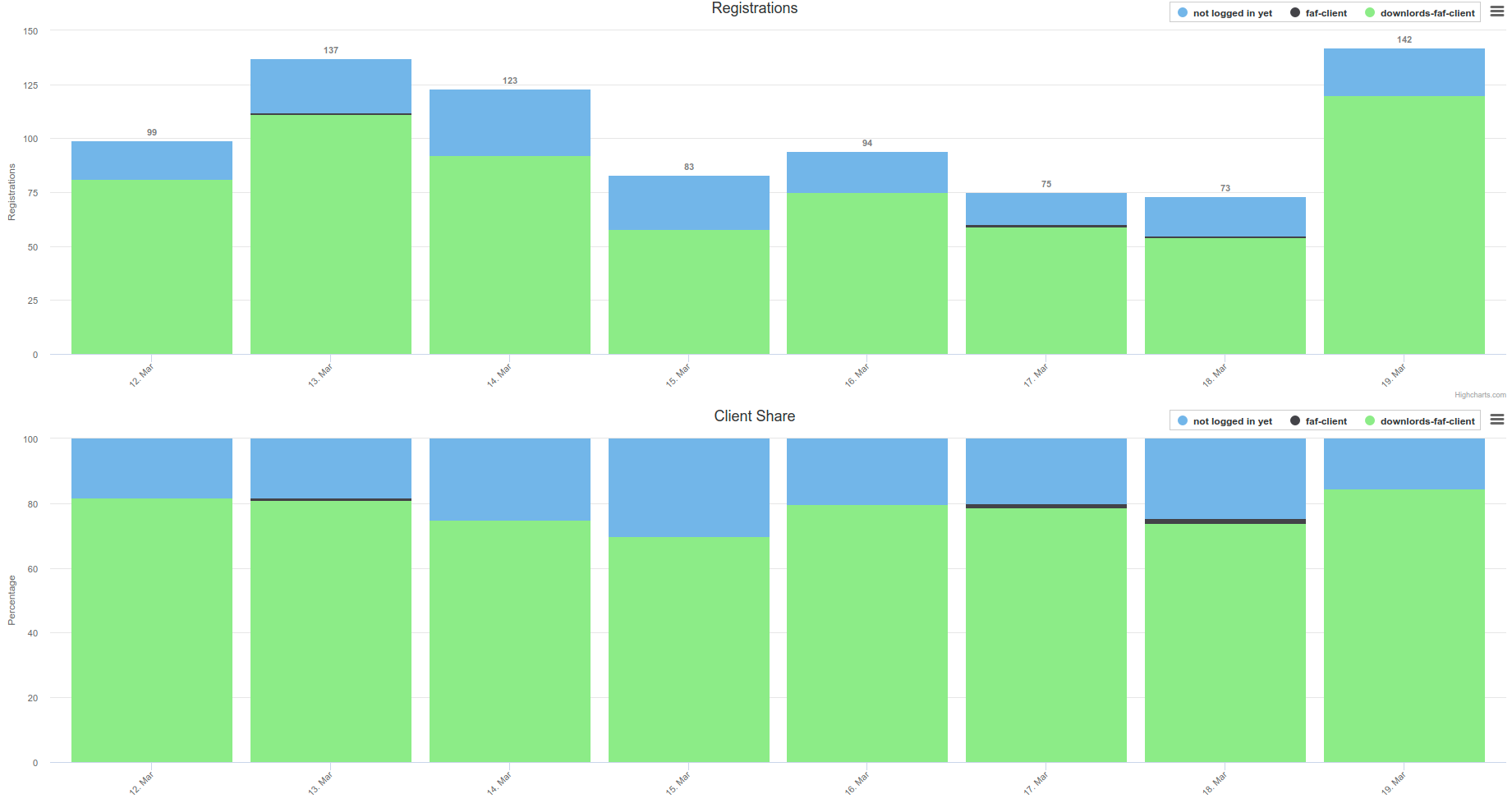

-
Based on the data in FAF's database:
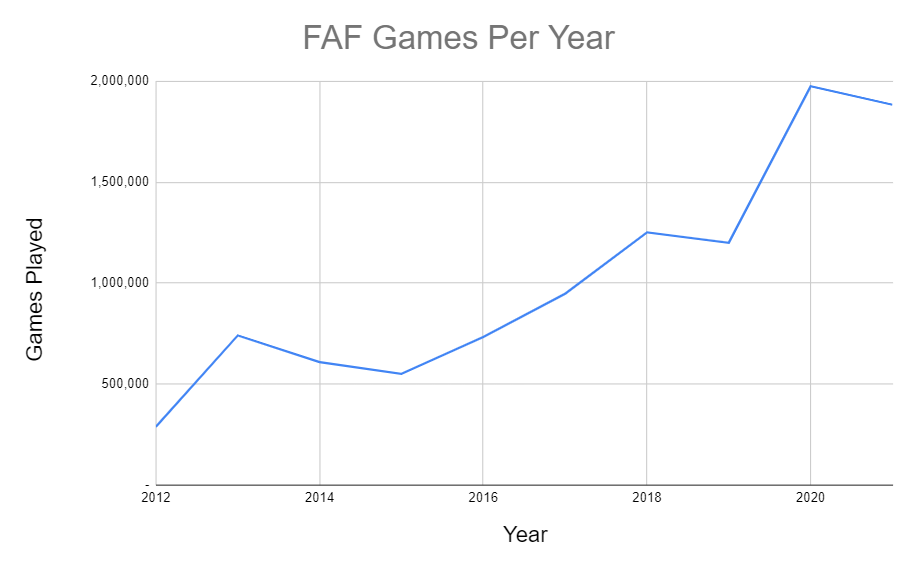
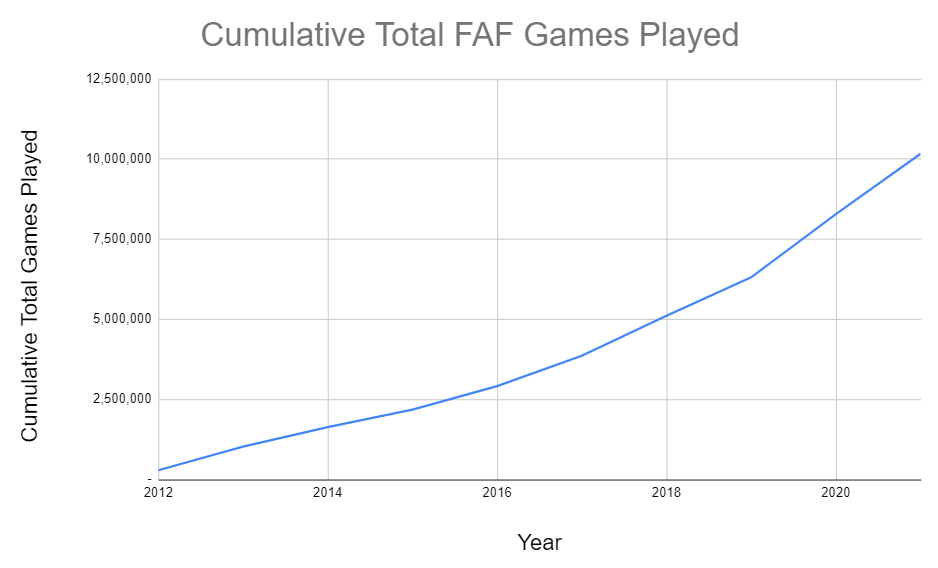
-
Can we see more stats? Is FAF growing and suceeding in general?
-

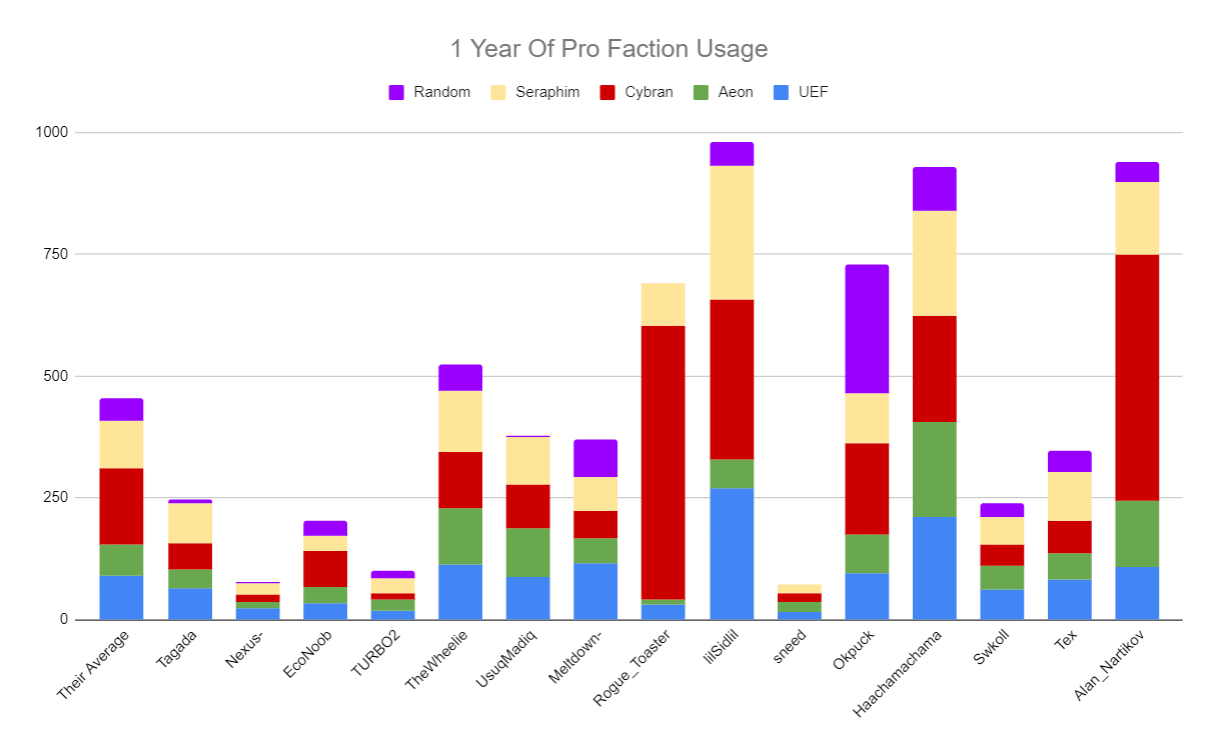
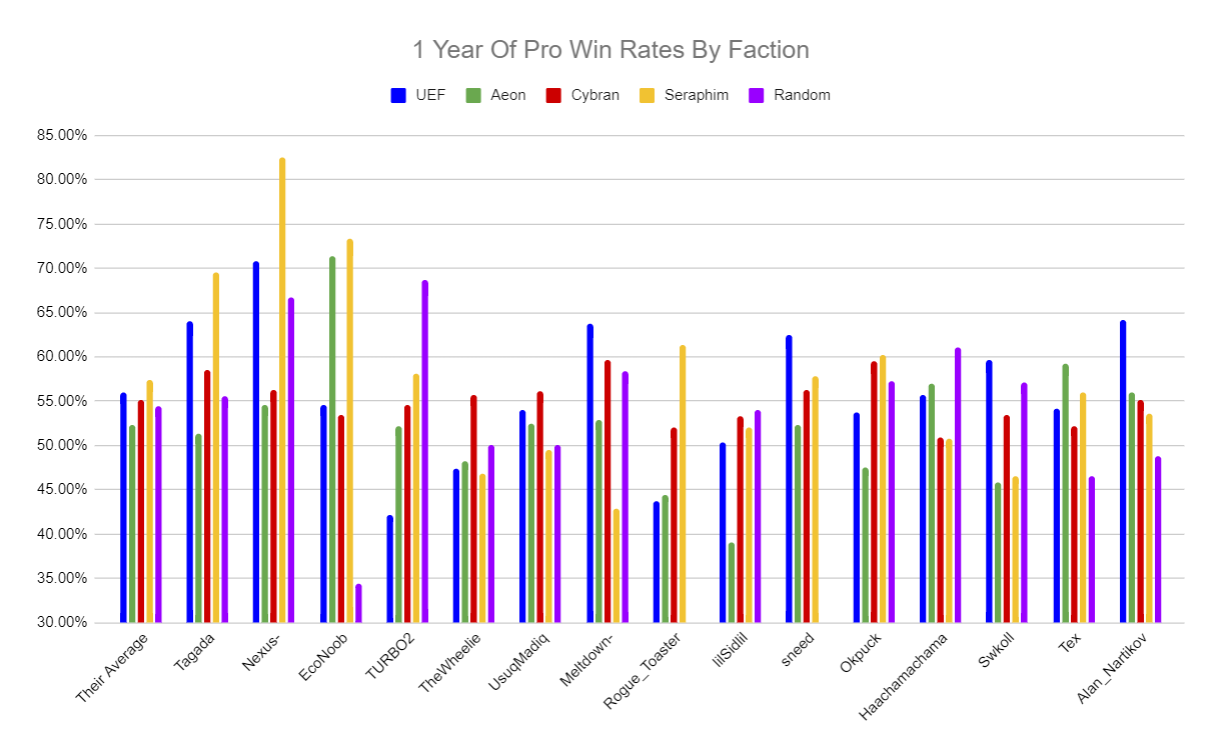
-
Hello. Why in my FAF profile in statistic only count of played games, but no other statistic and achievements?
-
Could we get same stats for year 2022?
-
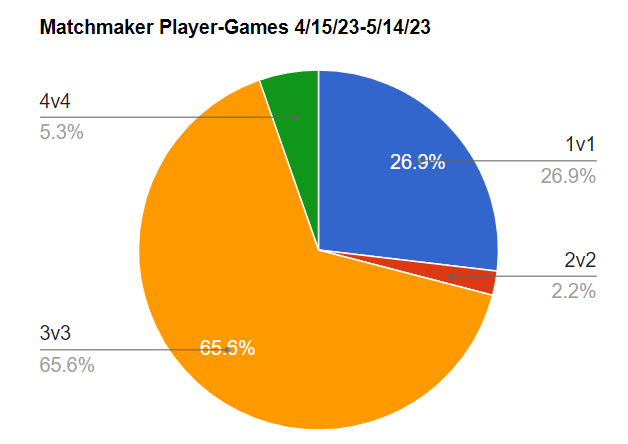
-
XD
-
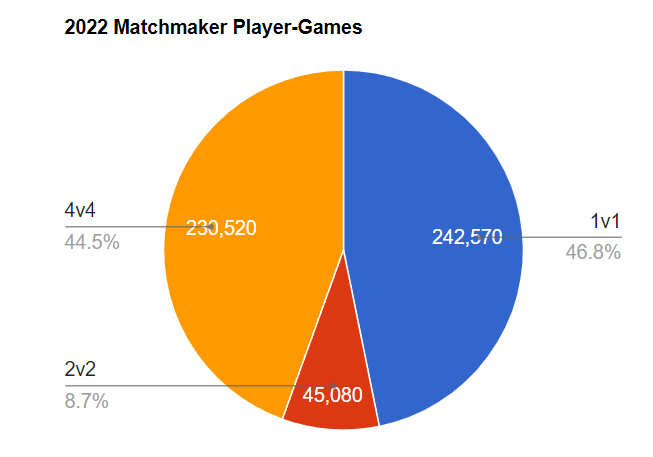
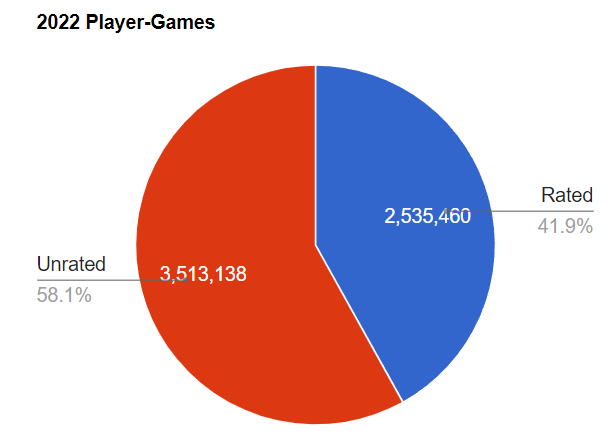
-
Curious on the cumulative total FAF games played.
What is the number for games that last longer than 5 minutes? I'm thinking a lot of games might be rehosts, testgames, etc.
-
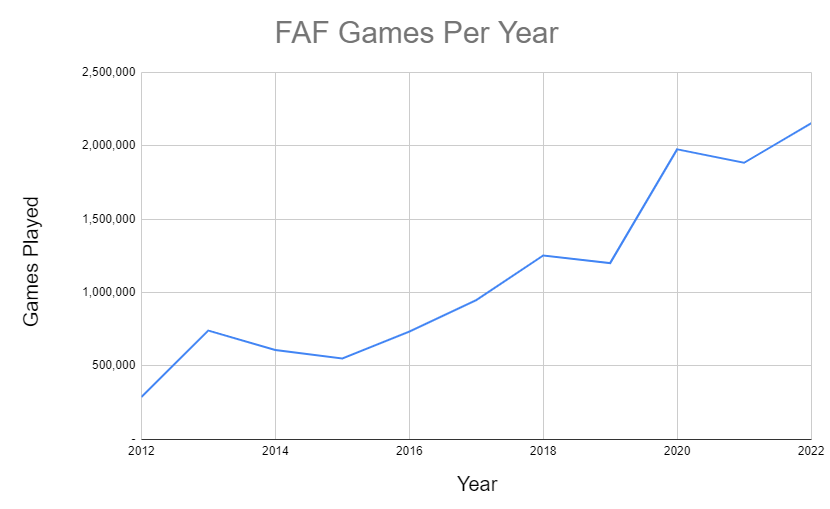
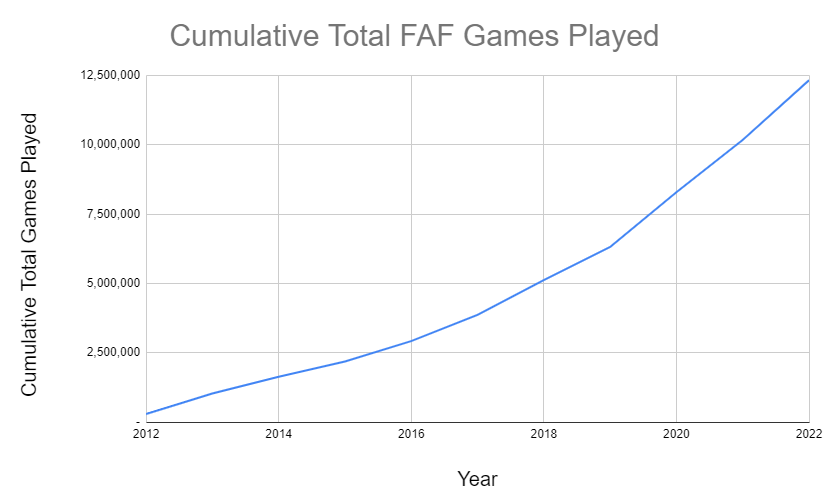
There are ~13,245,017 games on the replay vault.
Of the ~7,196,303 that showed up in the duration-refined results, 5,746,418 were 5+ minutes and 1,449,885 were 5 minutes or less. 932,939 results showed up when the duration was set to 60+.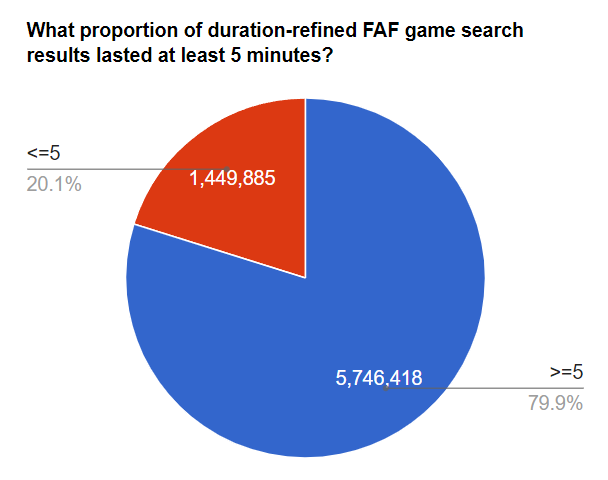
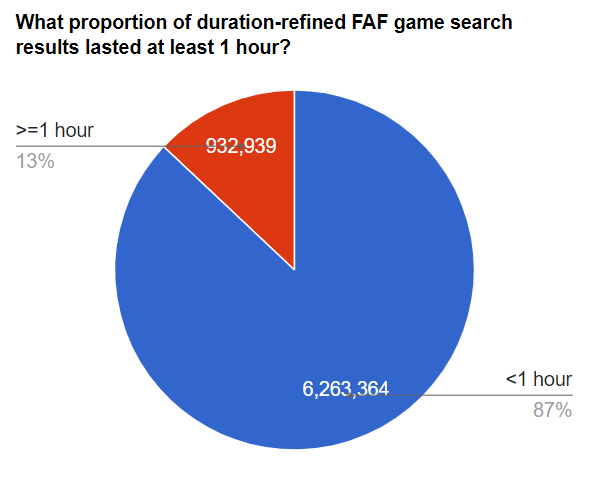
-
https://github.com/yaniv-aknin/fafdata
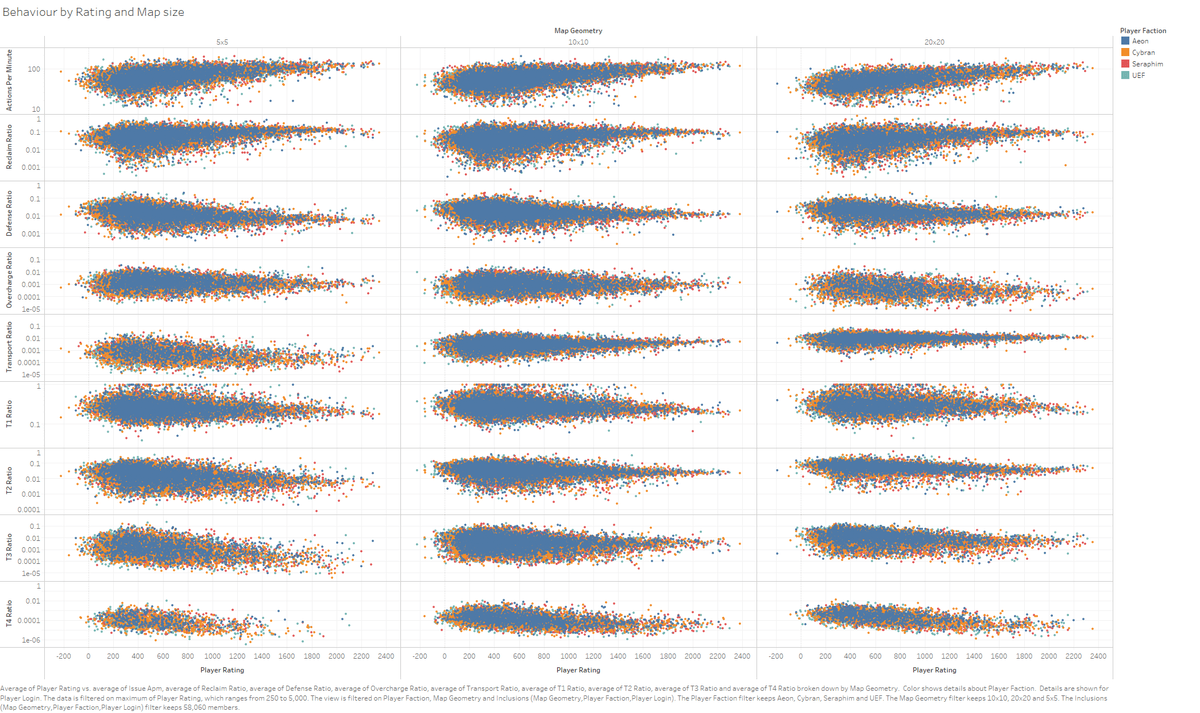
https://github.com/yaniv-aknin/fafalytics
"Boxplot of Actions Per Minute (APM) bucketed by the player's FAF rating. This plot analyses about half a million 1v1 ladder game replays."
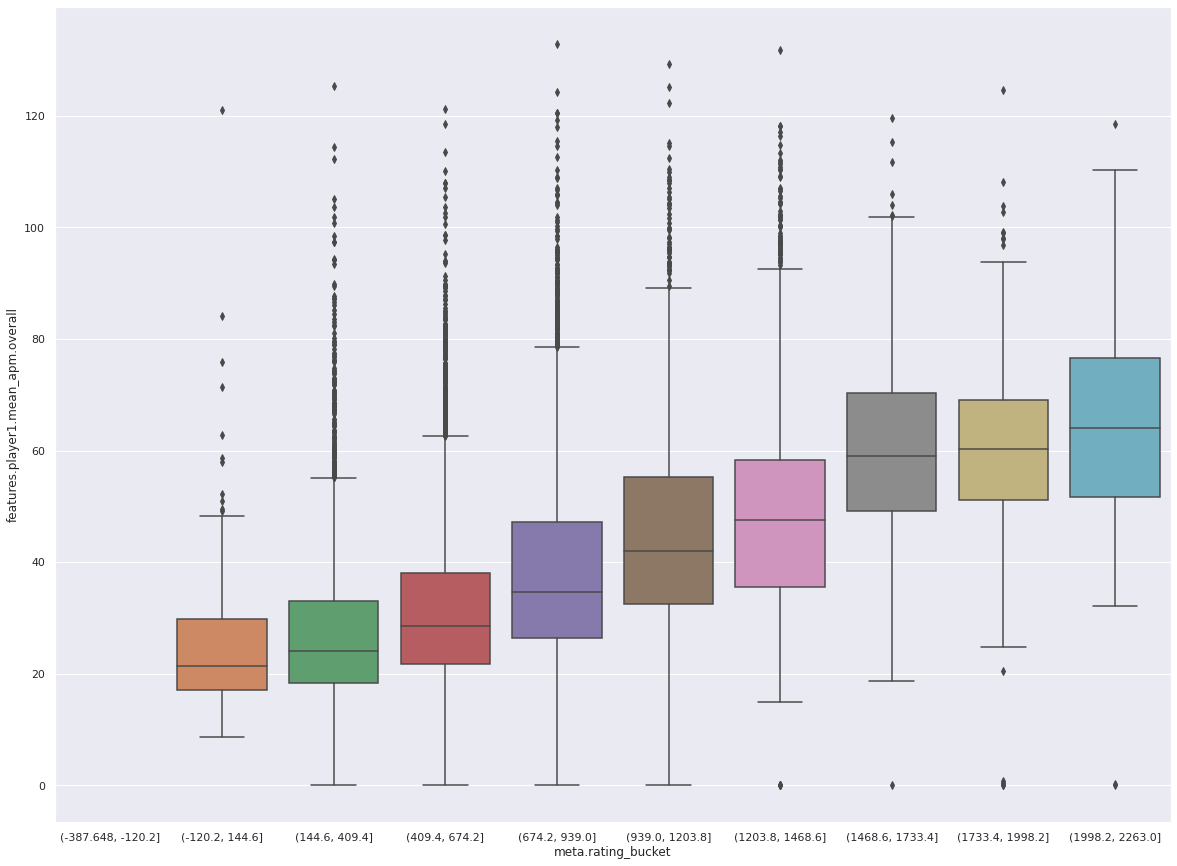
"Lineplot showing the APM over time of Tagada"
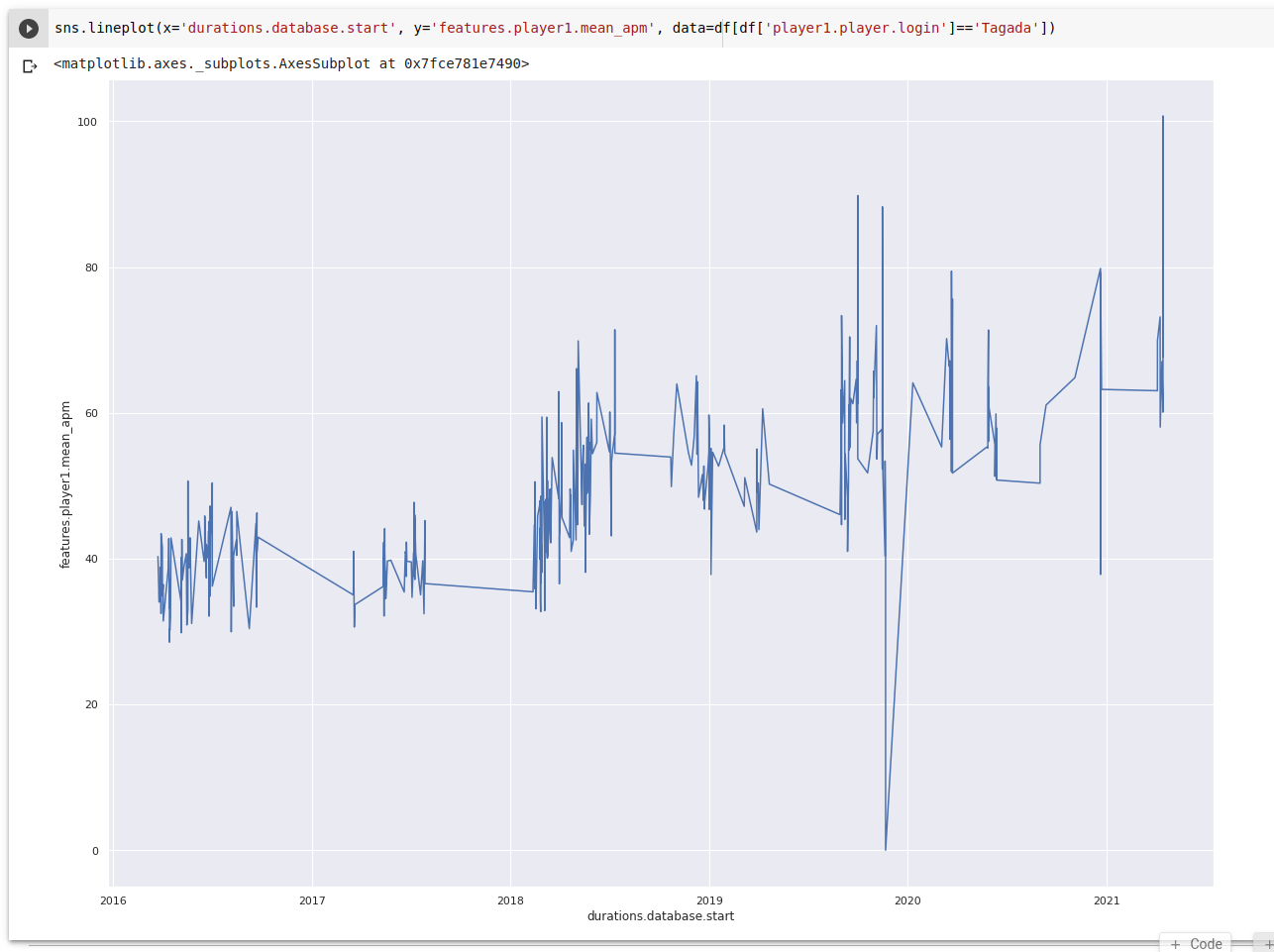
"Scatter plot showing the coordinates of ~all player commands issued during a game on Open Palms... Every dot represents a command given by the blue or orange players. The size of the dot is the number of units instructed with this command... the X-axis is reversed in this chart"
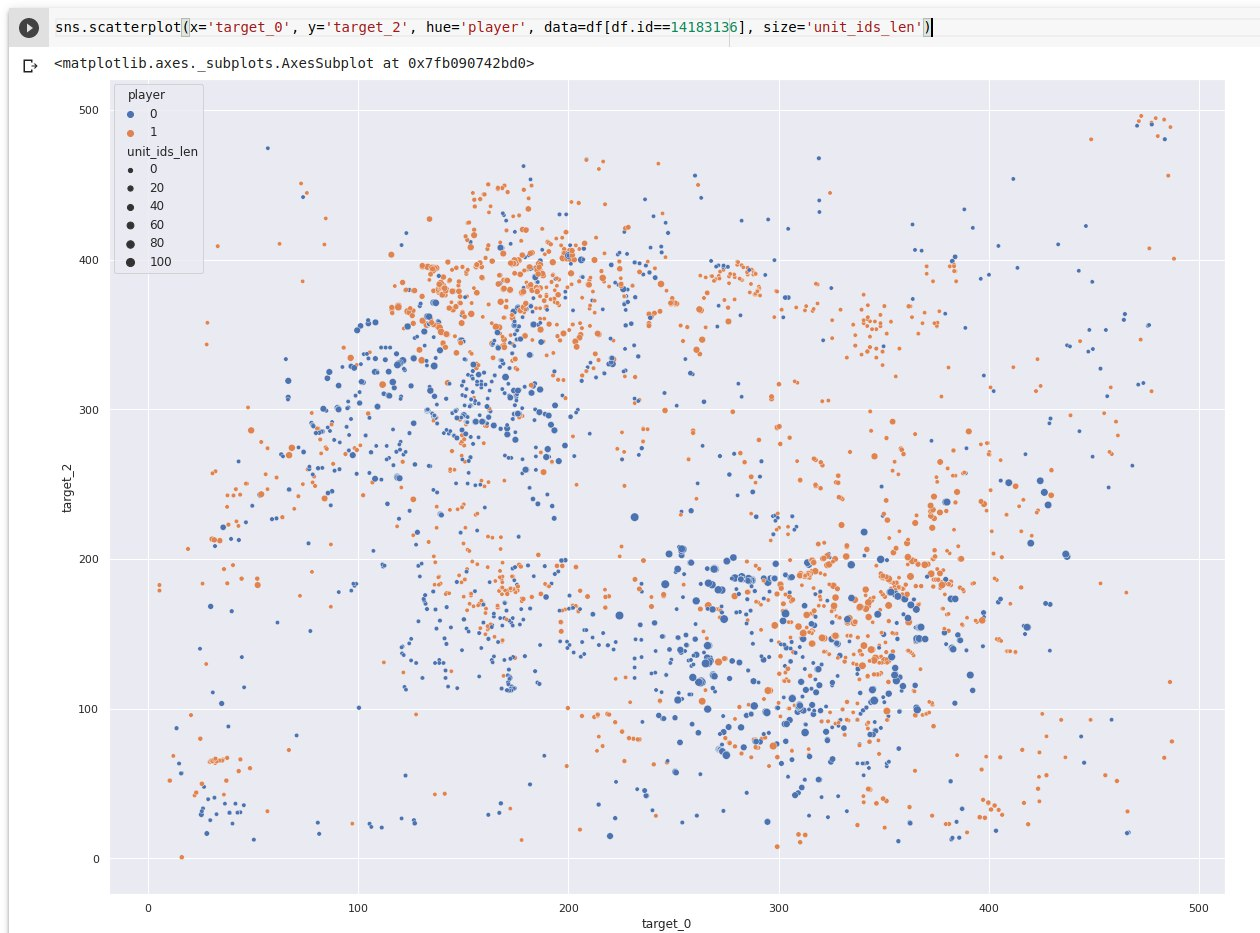
"Boxplot showing the area of the map covered by commands after 5 minutes of playing, bucketed by player rating. We can see top players cover more of the map with their activity."
